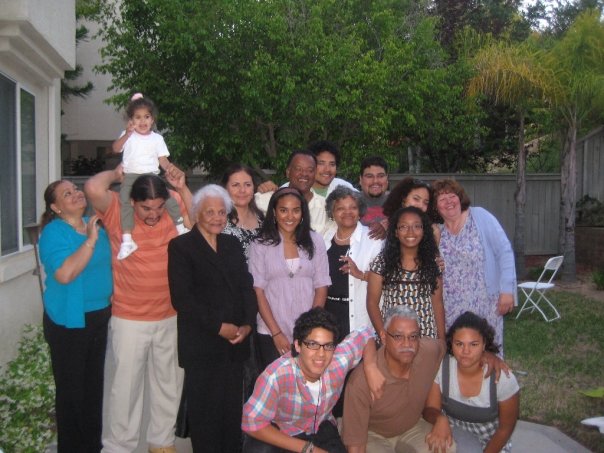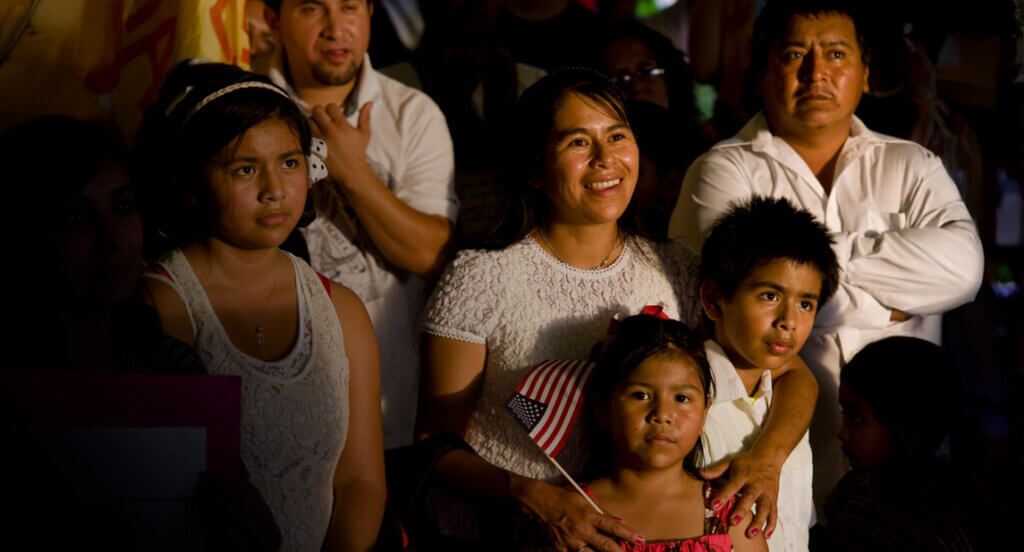After Waiting 13 Years, My Family Reunified
By Alicia Criado, Policy Associate, Economic and Employment Policy Project, NCLR
 When I initially heard the current immigration reform bill introduced on April 17 proposed to remove or limit certain family-based immigration petitions all I could think about was my personal family story. Without these petitions, many of my family members currently living and helping to strengthen the United States’ economy would not be here.
When I initially heard the current immigration reform bill introduced on April 17 proposed to remove or limit certain family-based immigration petitions all I could think about was my personal family story. Without these petitions, many of my family members currently living and helping to strengthen the United States’ economy would not be here.
My family is similar to many Latinos families in that we are close-knit and this includes my extended family. My mom was the first in her family to immigrate to the U.S. and through the family immigration system my mom sponsored her mother and eventually her sibling living in Peru.
I cannot help but cringe when I hear people talk about immigrants who are undocumented and say that they should have come the “legal way” or formally applying for green cards. It shows that they don’t know how few options exist for people to enter and that even in the channels that exist; people must endure extraordinary long waiting periods. I make it a point to share with them that I have family members who immigrated the “legal way” and waited 13 years to do so. Most people’s reaction is usually one of shock and astonishment that it can take over a decade for a family to be reunified.
Since my family immigrated to the United States in 2006, three have become naturalized citizens and they have all secured employment and are investing in their community by purchasing homes and starting businesses. Like many immigrant families, my mom’s siblings and mother live in close proximity of each other and provide emotional and financial support for each other. They also all help support my grandmother who will turn 86 next month.
Since 2006, my mom has also gone through many life changes such as divorcing my father and being laid off from her job at the peak of the Great Recession. Through these life changes, her siblings and mother have helped make her transition in life easier. My mom attributes her ability to bounce back from these difficult times and slowly reestablish herself in large part to have her siblings and mother here.
Plain and simple, if family-based immigration petitions were restricted, or in the case of siblings, eliminated, my mother would not have the family support she relies on today. Additionally, their community in Southern California would not benefit from the positive economic impact my family has contributed.
Although my loved ones had to wait 13 years before they could reunite with my mother, I’m thankful they had the opportunity to immigrate to this country and thrive. This unfortunately is not the case for many people who never receive visas after waiting in visa backlogs or those who are unjustly separated from their relatives. My family’s story not only sheds light on problems with our broken immigration system but also serves as a reminder of how policy affects real people’s lives and can help strengthen our economy. I can personally attest to the importance of preserving family-based immigration petitions. And I know that my family’s story is one of many that demonstrate we have benefited by having the ability to reunify with our loved ones.





